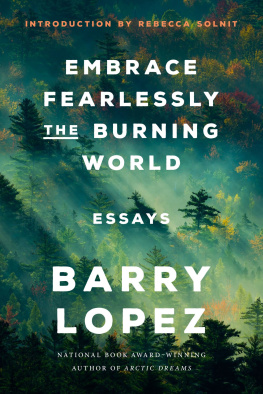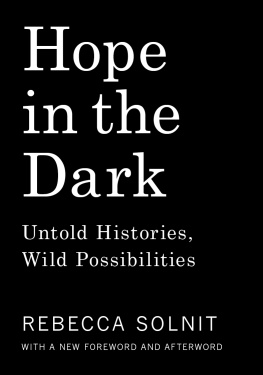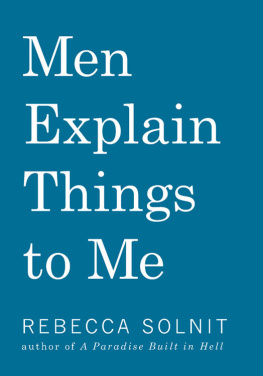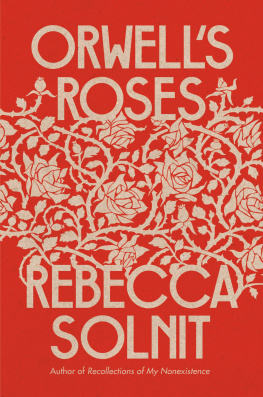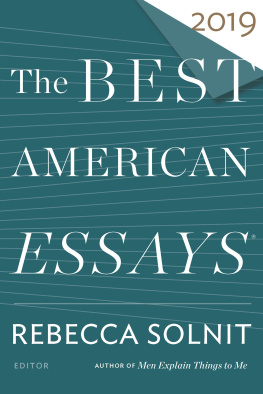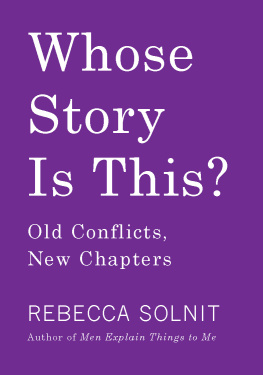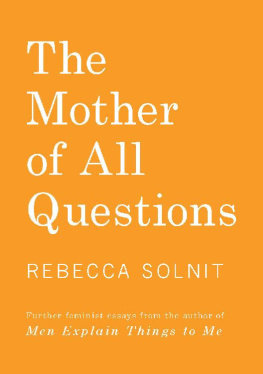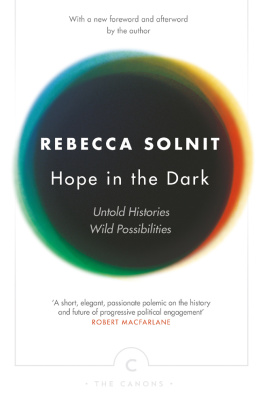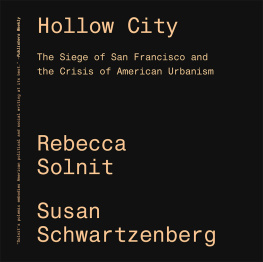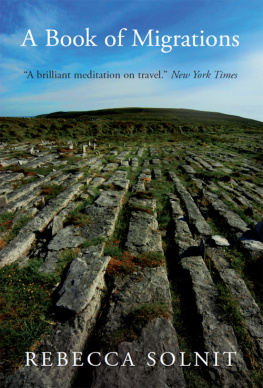Contents
Foreword
Politics and the American Language
One of the folktale archetypes, according to the Aarne-Thompson classification of these stories, tells of how a mysterious or threatening helper is defeated when the hero or heroine discovers his name. In the deep past, people knew names had power. Some still do. Calling things by their true names cuts through the lies that excuse, buffer, muddle, disguise, avoid, or encourage inaction, indifference, obliviousness. Its not all there is to changing the world, but its a key step.
When the subject is grim, I think of the act of naming as diagnosis. Though not all diagnosed diseases are curable, once you know what youre facing, youre far better equipped to know what you can do about it. Research, support, and effective treatment, as well as possibly redefining the disease and what it means, can proceed from this first step. Once you name a disorder, you may be able to connect to the community afflicted with it, or build one. And sometimes whats diagnosed can be cured.
Naming is the first step in the process of liberation. Calling Rumpelstiltskin by his true name makes him fly into a self
destructive rage that frees the heroine of his extortions; and though fairytales are thought to be about enchantment, its disenchantment that is often the goal: breaking the spell, the illusion, the transformation that made someone other than herself or himself, speechless or unrecognizable or without human form. Naming what politicians and other powerful leaders have done in secret often leads to resignations and shifts in power.
To name something truly is to lay bare what may be brutal or corruptor important or possibleand key to the work of changing the world is changing the story, the names, and inventing or popularizing new names and terms and phrases. The project of liberation has also involved coining new terms or bringing terms that were obscure into more popular use: we now talk about normalization, extractivism, unburnable carbon; about walking while Black, gaslighting, the prison-industrial complex and the new Jim Crow, affirmative consent, cisgender, concern trolling, whataboutism, the manosphere, and so much more.
The process works both ways. Think of the Trump administrations turning family reunification, which sounds like a good thing, into the ominous, contagious-sounding chain migration. Think of the second Bush administrations redefining torture as enhanced interrogation, and how many press outlets went along with it. Of the Clinton administrations hollow phrase building a bridge to the twenty-first century, which was supposed to celebrate the brave new world tech would bring and disguised how much it would return us to nineteenth-century economic divides and robber barons. Of Ronald Reagans introduction of the figure of the welfare queen, a mythic being whose undeserving greed justified cutting off aid to the poor and ignored the reality of widespread poverty.
There are so many ways to tell a lie. You can lie by ignoring whole regions of impact, omitting crucial information, or unhitching cause and effect; by falsifying information by distortion and disproportion, or by using names that are euphemisms for violence or slander for legitimate activities, so that the white kids are hanging out but the Black kids are loitering or lurking. Language can erase, distort, point in the wrong direction, throw out decoys and distractions. It can bury the bodies or uncover them.
You can pretend there are two sides to the data on the climate crisis and treat corporate spin doctors as deserving of equal standing with the overwhelming majority of scientists in the field. You can just avoid connecting the dots, as this country long has done with gender violence, so that the obscene levels of domestic violence and sexual assault against women become a host of minor and unreported stories that have nothing to do with one another. You can blame the victim or reframe the story so that women are chronically dishonest or delusional rather than that they are chronically assaulted, because the former reaffirms the status quo as the latter disassembles itwhich is a reminder that sometimes tearing down is constructive. There are a host of words used to damn women bossy, shrill, slutty, hysterical are a fewthat are rarely used for men, and other words, such as uppity and exotic , carry racial freight.
You can invent conflicts where there are noneclass versus identity politics ignores that all of us have both, and that a majority of people who might be termed the working class are women and people of color. Occupy Wall Streets slogan We are the 99 percent insisted on a vision of a society that didnt need to be stratified into several classes, but in which the 1 percenta phrase that has stuck around and become part of the mainstream vocabularyhad pitted themselves against the rest of us.
Precision, accuracy, and clarity matter, as gestures of respect toward those to whom you speak; toward the subject, whether its an individual or the earth itself; and toward the historical record. Its also a kind of self-respect; there are many old cultures in which you are, as the saying goes, as good as your word. Our Word Is Our Weapon was the title of a compilation of the Zapatista Subcomandante Marcoss writings. If your word is unreliable, junk, lies, disposable pitches, youre nothinga boy who cried wolf, a windbag, a cheat.
Or so it used to be, which is why one of the crises of this moment is linguistic. Words deteriorate into a slush of vague intention. Silicon Valley seizes on phrases to whitewash itself and push its agendas: sharing economy, disruption, connectivity, openness ; terms like surveillance capitalism push back. The current presidents verbal abuse of language itself, with his slurred, sloshing, semi-coherent word salad and his insistence that truth and fact are whatever he wants them to be, even if he wants them to be different from what they were yesterday: no matter what else hes serving, hes always serving meaninglessness.
The search for meaning is in how you live your life but also in how you describe it and what else is around you. As I say in one of the essays in this book, Once we call it by name, we can start having a real conversation about our priorities and values. Because the revolt against brutality begins with a revolt against the language that hides that brutality.
Encouragement means, literally, to instill courage; disintegration means to lose integrity or integration. Being careful and precise about language is one way to oppose the disintegration of meaning, to encourage the beloved community and the conversations that inculcate hope and vision. Calling things by their true names is the work I have tried to do in the essays here.
Armpit Wax
(2014)
You can take the woman out of the church but not the church out of the woman. Or so I used to think, as my lapsed Catholic mother carried out dramas of temptation, sin, and redemption by means of ice cream and broccoli, or froze with fear at the idea of having made a mistake. She had left behind the rites and the celebrations but not the anxiety that all mistakes were unforgivable. So many of us believe in perfection, which ruins everything else, because the perfect is not only the enemy of the good, its also the enemy of the realistic, the possible, and the fun.
My mothers punitive God was the enemy of Coyote. Prankish, lecherous, accident-prone Coyote and his cousins, the unpredictable creators of the world in Native American stories, brought me a vision of this realm as never perfect, made through collaboration and squabbling. I came across one of these stories a quarter century ago, when the conceptual artist Lewis DeSoto, whose father was Cahuilla, asked me to write about his work. He handed me a photocopy of one version of the Cahuilla creation story , which someone had transcribed from the oral tradition. The Cahuilla were one of the myriad smallish tribes that inhabited the vast area now known as California.
Next page

